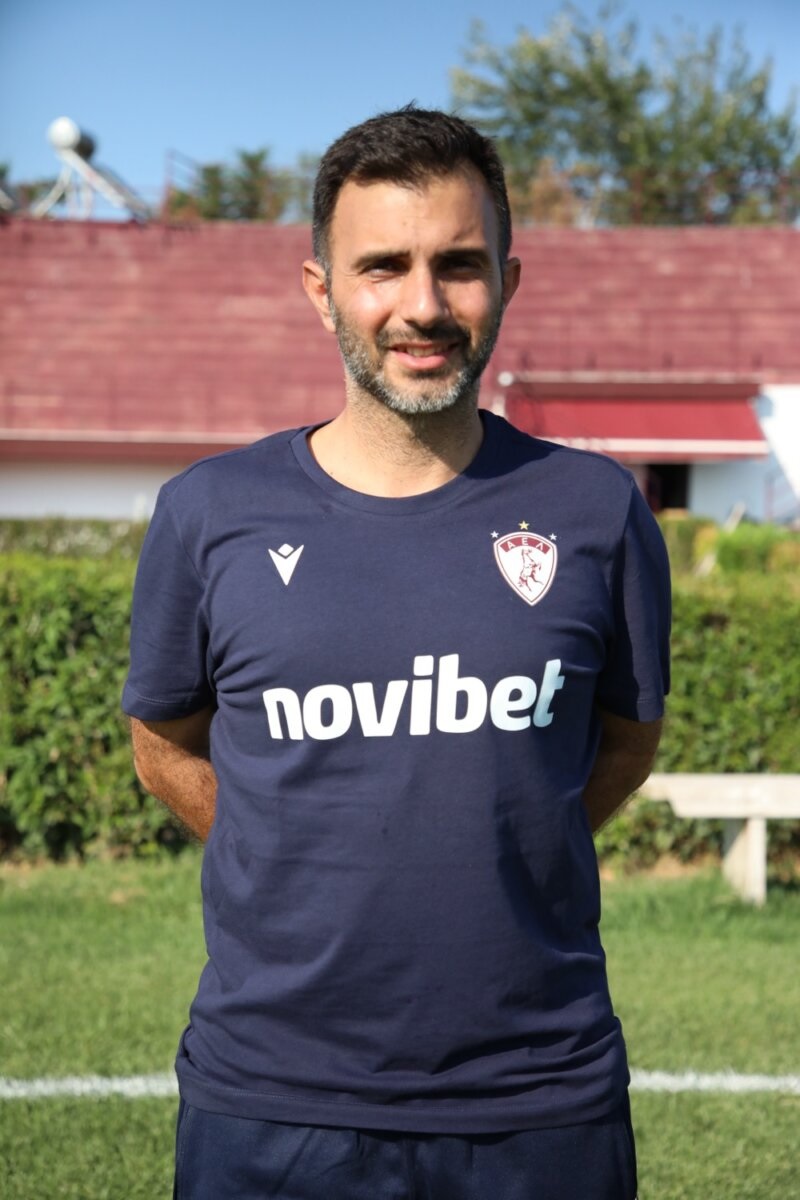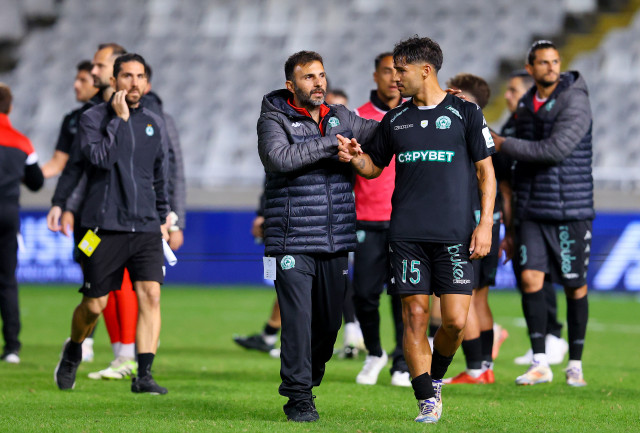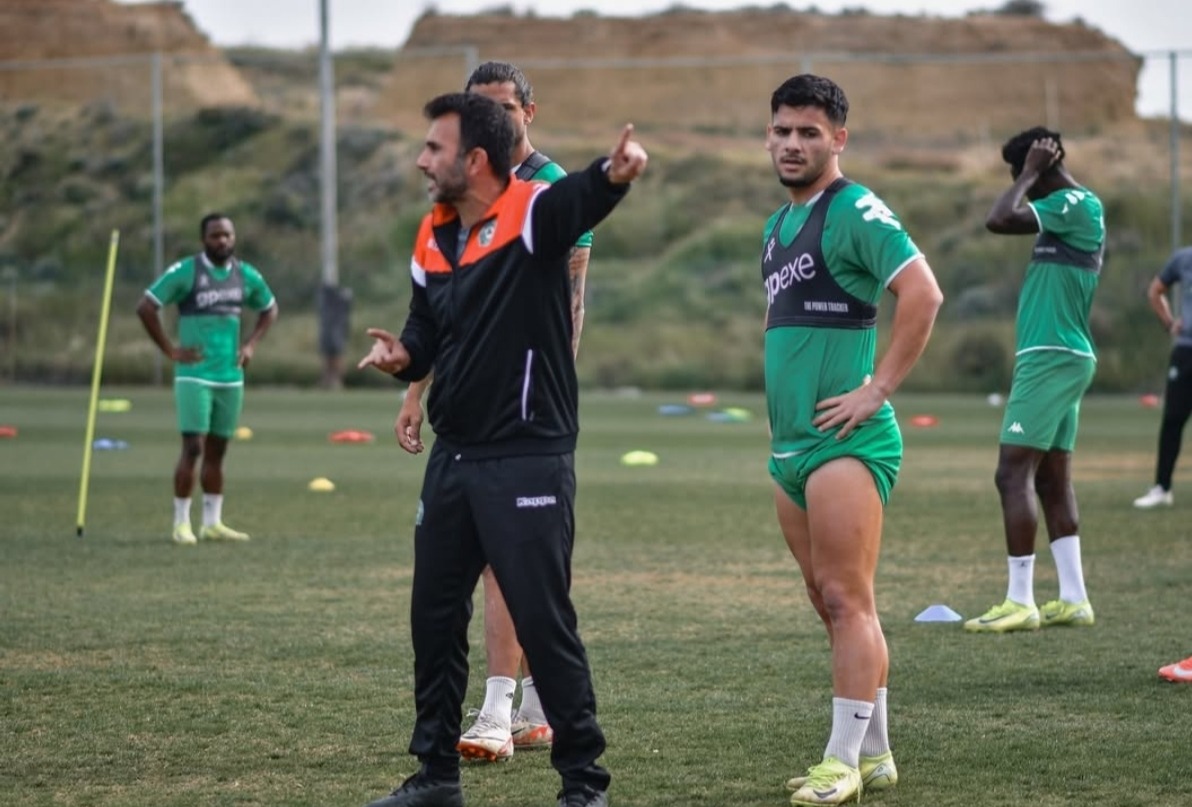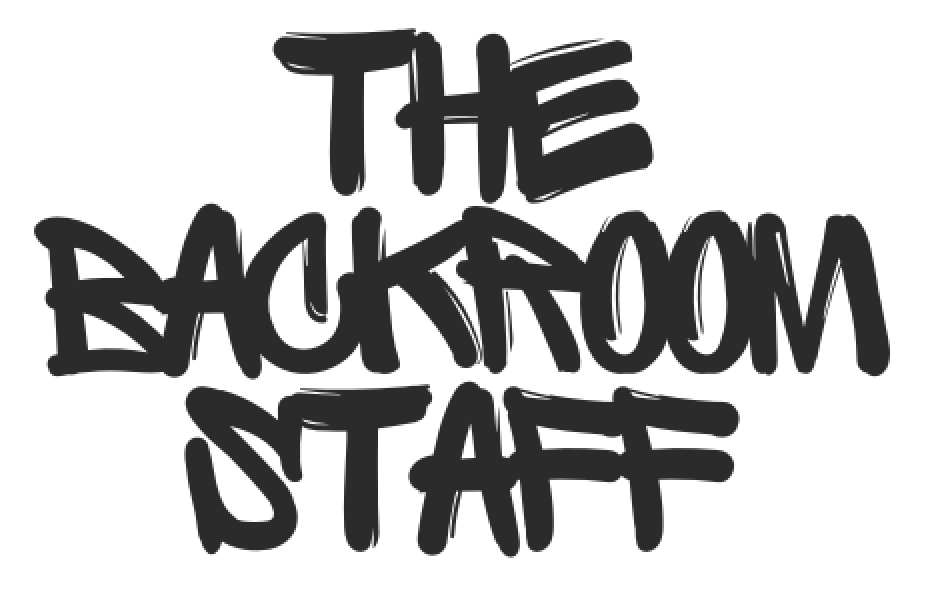From futsal to engineering and business degrees to the Greek Super League, Loucas Sialis has taken an unconventional route into professional football.
After a decade coaching at elite youth level in Cyprus including stints at APOEL Nicosia, Anorthosis Famagusta and Omonia Nicosia - he stepped into senior football last season with newly promoted Omonia 29M. Now, he’s followed head coach Giorgos Petrakis to AE Larissa, aiming to help the club stay in the Greek Super League.
Away from the field, Loucas has written hundreds of articles and several books on coaching and training, many of which are available on his website, footballcoach365.com.
In this interview, Loucas talks about his journey to the top level, the lessons learned in youth development and his take on the differences between Greek and Cypriot football.
The interview has been condensed and lightly edited for grammar and clarity.

[ Did you have a playing career? ]
Actually, not in 11-a-side, I just played in local teams but I played in the first and second futsal divisions for 5 or 6 years in Cyprus. So, that was a ‘career’ and it was the professional level in Cyprus back then (but not at a level in which the players were paid enough to live from it).
When I started coaching seriously, I stopped playing so I could focus more on coaching and developing in that area.
[ Your background - master’s degrees in both engineering and business - is pretty unique for a coach. How did you get into coaching? ]
When I was studying, it was not my intention to become a coach. I was studying electrical engineering and like the majority of people, I was trying to find a job and develop a career in that.
But while I was studying, in my bachelor’s degree, and then in my master's, I started coaching young kids - like under 5’s - to fill my afternoons and to earn some extra money - and because I love football!
I started to study for the coaching licenses and progressed through some of the UEFA licenses and some other certificates. In the period after I completed my B license and began on the A, I took the decision to try to become a professional coach. And that’s what I’ve been trying to do for the last 5 years.
[ Do you think this time spent studying engineering and business has helped your coaching or given you some kind of advantage? ]
Maybe not directly. But because I went to university and studied, I believe I have quite good knowledge and skills in regards to technology. And now, I’m able to work in different roles. I can find a job as an analyst or a scout, as well as a coach, because I can work very well with computers.
Also, because I had the opportunity to study, I believe it’s easier for me to learn new programs, new trends and also to self-study and learn on my own. So, it’s more the soft skills than the actual knowledge I got from my degrees that has been helpful as a coach.
[ After spending most of the last 10 years at the higher youth levels (U14-U19), what has been the biggest difference since moving into senior football? ]
The biggest, of course, is communication. At senior level, we’re speaking with mature people. Players who have a good career behind them, who have their own personality and their own experiences from other leagues and coaches. You need to speak to them in a different way.
Another big difference is that you can assume they already know the ‘basics’. When you’re coaching a kid at under 14s, you need to focus a lot on the technical skills - for older players, this is different, often you speak more about tactics. Maybe you need to adjust your sessions and teach different things.
And, as we all know, at the senior level, the result is the most important thing.

[ You worked at some of the biggest clubs in Cyprus - clubs with the goal of producing professional players - is there a point (e.g. at U15 or U17 or U19, etc) where you can tell certain players aren’t going to make it at the professional level? ]
Actually, I think you are never 100% sure that a player will not manage to reach the first team.
But, unfortunately, because the clubs are investing a lot in players, they cannot afford to have a player in the system from 14 to 19 years old, just to realize at 19 that they cannot help the first team.
So you are forced to identify some elements at, let's say, 16 - or around there - where a boy or a girl has developed their physicality (and you can better assess). In modern football, if you are not fast or strong, the possibilities to play are limited. A slow player today will face more difficulty than 20 years ago.
At 16 or 17 years old, it becomes easier to identify these things and you can be, let’s say, 80 or 85% sure. So, usually you can keep a player around until then to avoid mistakes but afterwards, the clubs are forced to make some difficult decisions to make room for other players to come in.
"I think you are never 100% sure that a player will not manage to reach the first team"
[ Now that you’re working in senior football, do you think your experience as a youth coach has made you more open to playing or promoting young players into the first team? ]
Yes, I think I will always be attracted to young players because I’ve spent a lot of time working with them. I know that, on many occasions, a young player can have a very strong motivation to play, they have a thirst to play and willingness to work hard - because they might only have one or two opportunities to become a professional.
So I always love working with the young players, and there are also many occasions where they are more open-minded to listen to you. But maybe this is also because I’m an assistant coach, maybe one day when I’m a head coach and am more pressured by the result, I may think differently and look also to add some experienced players!
[ What is your role as assistant coach? How does the rest of the coaching team look? ]
At AEL, in preparation to play in the Greek Super League this year, we have, of course, the head coach, 3 assistant coaches, 2 fitness coaches and a goalkeeper coach. There is also the technical staff, the physio, the doctor and all the administrative staff behind that as well.
Among the assistant coaches, we are responsible for different things. For example, I am doing a lot of work on the set pieces, mainly attacking, designing and coaching them. But we also share a lot of the work on the field during the training sessions. We are all involved in designing and running different parts of the sessions, based on the coach’s guidelines.
At the moment, we don’t have a dedicated analyst in the team so we also share the analysis work. Often, this is good because we can do the analysis and directly coach the players on the pitch.
The head coach’s role is as a manager, he’s responsible for the actual tactical part of the session, the overall design of the week and the overall strategy and planning of the next match. After the head coach sets the instructions, we support based on that.
[ How does the size of the coaching team at AEL compare with Omonia 29M? ]
It’s almost the same - the only difference is that here at AEL, we have one more assistant coach.

[ Interesting! How do you compare the Greek Super League with the Cypriot First Division more broadly? ]
The Cypriot championship has made big steps forward in the last few years. Last year, we had 3 teams progressing from the Conference League league phase, which was a huge success for Cyprus. This year, Pafos has managed to progress to the third qualifying round in the Champions League (and will play against Dynamo Kyiv).
So, in general, Cyprus has made big steps forward. The top 4 or 5 teams in Greece are still ahead of our top teams but as the results of Cypriot teams in Europe show, Cypriot teams are closing the gap. I believe that if Pafos or Aris competed in Greece, they would manage to be near the top teams but it would be very difficult, at the moment, to be in the top 3 or 4. Budget is a big factor.
[ You were working with Giorgos Petrakis at Omonia 29M last season too. Did other members of his coaching team make the move to AEL too? How does that call go, asking you to come with him? ]
I was the only one who moved from Omonia 29M to AE Larisa this season. Some of the other staff were already here and some of them were also a personal decision from Mr. Petrakis but not from Cyprus.
It wasn’t a formal call like you mentioned. We were, of course, together last season and when the opportunity came, we were still in Cyprus, so we managed to discuss everything in person. We spoke about it, and if he had the opportunity to work abroad, I would follow him.
[ For the second time in two seasons, you’re joining a club that has just been promoted. What’s it like coming into a team in this situation? ]
The difficulty is that in Greece - and also in Cyprus - there is a big difference in the level between the second division and the first division. AEL managed to win promotion undefeated last year, they were the strongest team in the second division by far. But even though the team had a very strong squad, the step up to the first division is very big.
As we did last year at Omonia, there is a need for players with experience from first divisions, either in Greece or abroad to be able to compete and cut the gap with the other teams in the first division.
We’ve signed, until now, about 15 new players for the upcoming season.
AEL is a historic club here in Greece, it’s the only club outside of Athens and Thessaloniki that has managed to win the league. They’ve won two cups and played in Europe. Unfortunately, the last few seasons, they were in the second division, but it’s a big club with a big fan club following them. The people in the city are thirsty for success and to see the team competing.
"We’ve signed, until now, about 15 new players for the upcoming season"
[ AEL is playing Panetolikos tomorrow in a friendly. It seems increasingly common to play friendlies against clubs in the same division - why? ]
I think it makes a lot of sense, because, as we reach near the start of the season, it’s good for us to compete against teams that are not just from the same league but also teams that we are going to compete for the same goals.
This is the easiest way to see how we compare with them. Playing teams from the second division or other countries won't give us a lot of information about where we stand and what we are missing. Now, we still have time (before the season) to maybe sign another player, or to change something in the tactics.
In general, teams in preseason may start with some friendlies with teams from other countries or lower divisions and slowly progress to teams in the same league. For us, we will play Panetolikos, then two more friendlies, during a tournament, with teams in the first division before the first match in the Greek Cup and then the league starts.
—^interviewer’s note: we spoke on July 31, AEL played Panetolikos on August 1 (match report)
[ Of course, your immediate future is planned at AEL, but how do you think about your future goals over the next few years? Do you have an aspiration to become a head coach somewhere? ]
About being a head coach, of course, this is in my mind - I believe every coach, with strong ambitions, has these dreams or goals in his or her mind. Coaching is my passion. I am a person with big goals and high ambitions who has worked a lot for many years to have an opportunity.
At the moment, I want to establish myself at the highest level and be a valuable member of a high quality technical staff, either as an assistant coach or in assistant coach/analyst positions. Now, with Mr. Petrakis - who is a coach of a high caliber, with great knowledge, with a promising future ahead of him - I believe we will have the opportunity to coach at the highest level. And who knows, with the experience I’ll gain in the coming years, maybe I will also get new opportunities to go abroad, coach in different leagues and gain more experience.
But for now, my focus is on AE Larisa and the work we are doing here to achieve our goals.
